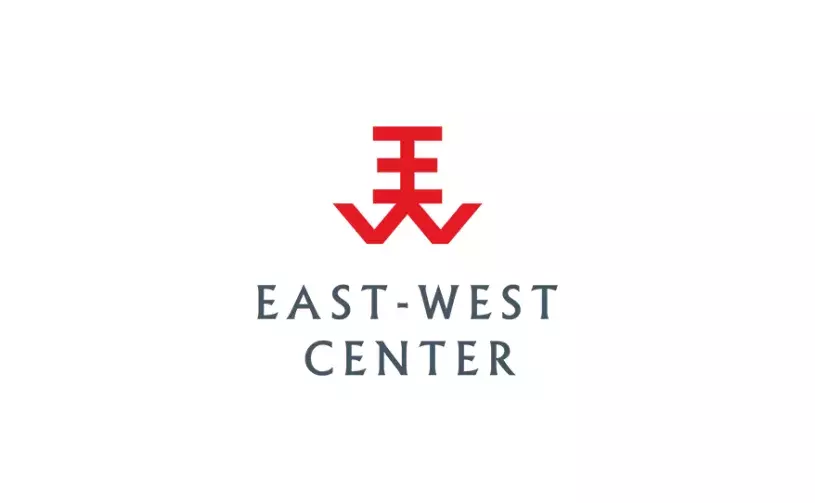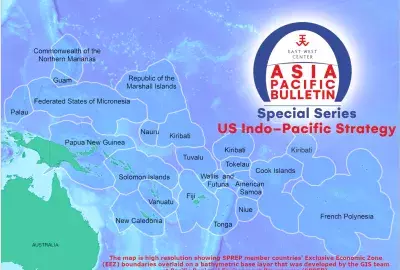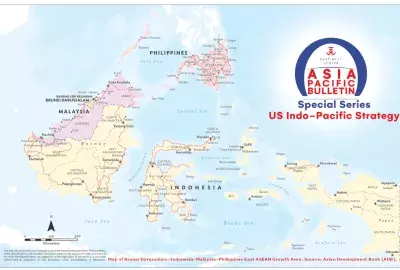Error message

SPECIAL SERIES: Philippine Perspectives on the 75th Anniversary of US-Philippines Bilateral Relations
Dr. Enrique Nino P. Leviste, Associate Professor, Department of Sociology and Anthropology, Ateneo de Manila University explains that "the emergence of specialized social science disciplines came about with the establishment of academic departments in the early American colonial period, circa 1900."
The United States has had a significant influence on how educational institutions are built and knowledge is produced in the Philippines. This influence is most evident within the social sciences and manifests in multiple ways.
While the origins of Philippine social sciences can be traced to the Spanish colonial period, from 1521 to 1898, the emergence of specialized social science disciplines came about with the establishment of academic departments in the early American colonial period, circa 1900. Following the model of American universities, fields such as anthropology, sociology, economics, history, political science, and psychology, were instituted at the University of the Philippines. Schools run by Catholic religious orders like the University of Santo Tomas and the Ateneo de Manila University also made important contributions to the development and teaching of the social sciences. The introduction and proliferation of academic disciplines with well-defined theoretical and methodological grounding can also be attributed to American influence.
Filipinos who earned graduate degrees overseas through exchange programs, like the Philippine-American Educational Foundation (also known as the Fulbright Commission), played a crucial role in the development of Philippine social sciences. The return of US trained Filipino social scientists in the 1950s and 1960s, led to substantial revisions of social science curricula with the help of American faculty at Philippine universities. They recruited promising students into their respective academic fields and established professional organizations in history, social science, psychology, economic, and anthropology from the 1940s into the 1970s. Similarly, Philippine research infrastructure was bolstered by the proliferation academic journals, funding from organizations such as the Ford Foundation and the Rockefeller Foundation, and the establishment of research centers like the Research Institute for Mindanao Culture (RIMCU), the Institute of Philippine Culture (IPC), and the Center for Research and Communication (CRC).
Philippine social scientists in the 1970s and 1980s strove to break away from the colonial legacy that underpinned their disciplines. This shift in orientation afforded fertile ground for two influential countermovements—Marxism and the indigenization movement—to take root. Marxist-inspired scholars criticized their peers for ignoring the structural bases of social ills and proliferating bourgeois ideology. In turn, proponents of indigenization sought to use concepts, theories, and methods drawn from local peoples to strengthen the cultural context of social science knowledge. In the 1990s, an era of pluralization and convergence in the social sciences was ushered in by the need for practical formulations on economic, health, women’s, environmental, and other issues. Attempts to integrate opposing perspectives on social issues in the 1990s weakened polemical exchanges between competing schools of thought. This trend continued in the 2000s and 2010s with the increasing democratization of political and civic life, the emergence of new knowledge centers outside academia and the Global North, commodification of research, and increasing theoretical and methodological syncretism and interdisciplinarity.
Continuing US Influence, Recent Engagements and Future Prospects
American influence on the evolution of Philippine education institutions has remained strong amid ongoing democratization and the emergence of new knowledge centers. The implementation of the K-12 program in 2012, a move meant to enhance tertiary school preparedness of students and global marketability of professionals, is an example. American standards continue to serve as benchmarks of success.
American universities remain a top destination for Filipino students, according to United Nations Educational, Scientific and Cultural Organization (UNESCO) data on student mobility in Asia. This trend bodes well in maintaining Philippine-US partnerships in the social sciences. An International Institute of Education’s Open Doors survey further validates this by showing that the number of Filipino students attending US universities has steadily increased over a three-year period. In 2019, for example, 3,320 students attended American universities, representing a 2.9% increase from 3,225 in 2018.
Philippine Studies programs in many US universities also contribute to strong academic ties between the two states. Apart from the University of Hawaii at Manoa and Cornell University which have reputable Philippine Studies programs, some universities in California have established similar offerings. Research on Philippine history and politics at the University of Wisconsin-Madison has also been robust. Berkeley, UCLA, University of Michigan-Ann Arbor and Washington State include Philippine specialists in their faculty rosters. Moreover, postdoctoral fellowships, like the East-West Center of Washington’s US-Philippines Alliance Fellowship, and research grants’ like those from the Fulbright Program and the Spencer Foundation, create spaces for further cross border collaboration between junior and established Philippine affairs experts.
While the Covid-19 pandemic severely hampered these engagements, forcing some to discontinue altogether, the use of online distance learning platforms have increased and created alternative channels for social science knowledge dissemination and capacity building activities to proceed. In October 2021, for example, the Philippine Sociological Society, in partnership with the De La Salle University and the International Sociological Association, hosted its first online international conference which included scholars and practitioners from the US. The University of Santo Tomas, in the same year, likewise spearheaded a Teachers’ Congress to conclude a three-month long online Democracy Certificate Program for primary and secondary school social studies teachers with US, UK and Singapore-based social science and education practitioners as mentors. In the Ateneo de Manila University’s School of Social Sciences, webinars and online roundtable discussions hosted by academic departments and research centers have become conduits of sustained collaboration between local and international stakeholders chiefly on ways to navigate and address the economic, social and political impact of the Covid-19 pandemic. Online research activities under Ateneo de Manila’s supervision, while cumbersome to implement, also carried on. The Institute of Philippine Culture’s two-year study on parish-based public engagement activities in the Archdiocese of Manila, a collaborative project with social scientists from the University of Louisville and the University of Wisconsin-Madison, counts as a noteworthy example.
Taking all these recent engagements into account, future collaboration between Filipino and American social scientists should focus on three key points. First, the restrictive nature of the pandemic should motivate social scientist to design new research methodologies that allow research partners to effectively carry out data collection and analysis online without completely compromising its experiential and collaborative aspects. In places where internet availability is a perennial problem, research funds for online infrastructure support should be allocated. Second, training modules that empower community partners to design, plan, and carry out their own onsite research in support of specific community or sectoral advocacies should be developed. This type of training will generate more opportunities for evidence-based and inclusive approaches to community-level policymaking. Lastly, partnering with geographical isolated and disadvantaged areas (GIDAs) through research, capacity building and advocacy work should be prioritized.
SPECIAL SERIES: Philippine Perspectives on the 75th Anniversary of US-Philippines Bilateral Relations
Dr. Enrique Nino P. Leviste, Associate Professor, Department of Sociology and Anthropology, Ateneo de Manila University explains that "the emergence of specialized social science disciplines came about with the establishment of academic departments in the early American colonial period, circa 1900."
The United States has had a significant influence on how educational institutions are built and knowledge is produced in the Philippines. This influence is most evident within the social sciences and manifests in multiple ways.
While the origins of Philippine social sciences can be traced to the Spanish colonial period, from 1521 to 1898, the emergence of specialized social science disciplines came about with the establishment of academic departments in the early American colonial period, circa 1900. Following the model of American universities, fields such as anthropology, sociology, economics, history, political science, and psychology, were instituted at the University of the Philippines. Schools run by Catholic religious orders like the University of Santo Tomas and the Ateneo de Manila University also made important contributions to the development and teaching of the social sciences. The introduction and proliferation of academic disciplines with well-defined theoretical and methodological grounding can also be attributed to American influence.
Filipinos who earned graduate degrees overseas through exchange programs, like the Philippine-American Educational Foundation (also known as the Fulbright Commission), played a crucial role in the development of Philippine social sciences. The return of US trained Filipino social scientists in the 1950s and 1960s, led to substantial revisions of social science curricula with the help of American faculty at Philippine universities. They recruited promising students into their respective academic fields and established professional organizations in history, social science, psychology, economic, and anthropology from the 1940s into the 1970s. Similarly, Philippine research infrastructure was bolstered by the proliferation academic journals, funding from organizations such as the Ford Foundation and the Rockefeller Foundation, and the establishment of research centers like the Research Institute for Mindanao Culture (RIMCU), the Institute of Philippine Culture (IPC), and the Center for Research and Communication (CRC).
Philippine social scientists in the 1970s and 1980s strove to break away from the colonial legacy that underpinned their disciplines. This shift in orientation afforded fertile ground for two influential countermovements—Marxism and the indigenization movement—to take root. Marxist-inspired scholars criticized their peers for ignoring the structural bases of social ills and proliferating bourgeois ideology. In turn, proponents of indigenization sought to use concepts, theories, and methods drawn from local peoples to strengthen the cultural context of social science knowledge. In the 1990s, an era of pluralization and convergence in the social sciences was ushered in by the need for practical formulations on economic, health, women’s, environmental, and other issues. Attempts to integrate opposing perspectives on social issues in the 1990s weakened polemical exchanges between competing schools of thought. This trend continued in the 2000s and 2010s with the increasing democratization of political and civic life, the emergence of new knowledge centers outside academia and the Global North, commodification of research, and increasing theoretical and methodological syncretism and interdisciplinarity.
Continuing US Influence, Recent Engagements and Future Prospects
American influence on the evolution of Philippine education institutions has remained strong amid ongoing democratization and the emergence of new knowledge centers. The implementation of the K-12 program in 2012, a move meant to enhance tertiary school preparedness of students and global marketability of professionals, is an example. American standards continue to serve as benchmarks of success.
American universities remain a top destination for Filipino students, according to United Nations Educational, Scientific and Cultural Organization (UNESCO) data on student mobility in Asia. This trend bodes well in maintaining Philippine-US partnerships in the social sciences. An International Institute of Education’s Open Doors survey further validates this by showing that the number of Filipino students attending US universities has steadily increased over a three-year period. In 2019, for example, 3,320 students attended American universities, representing a 2.9% increase from 3,225 in 2018.
Philippine Studies programs in many US universities also contribute to strong academic ties between the two states. Apart from the University of Hawaii at Manoa and Cornell University which have reputable Philippine Studies programs, some universities in California have established similar offerings. Research on Philippine history and politics at the University of Wisconsin-Madison has also been robust. Berkeley, UCLA, University of Michigan-Ann Arbor and Washington State include Philippine specialists in their faculty rosters. Moreover, postdoctoral fellowships, like the East-West Center of Washington’s US-Philippines Alliance Fellowship, and research grants’ like those from the Fulbright Program and the Spencer Foundation, create spaces for further cross border collaboration between junior and established Philippine affairs experts.
While the Covid-19 pandemic severely hampered these engagements, forcing some to discontinue altogether, the use of online distance learning platforms have increased and created alternative channels for social science knowledge dissemination and capacity building activities to proceed. In October 2021, for example, the Philippine Sociological Society, in partnership with the De La Salle University and the International Sociological Association, hosted its first online international conference which included scholars and practitioners from the US. The University of Santo Tomas, in the same year, likewise spearheaded a Teachers’ Congress to conclude a three-month long online Democracy Certificate Program for primary and secondary school social studies teachers with US, UK and Singapore-based social science and education practitioners as mentors. In the Ateneo de Manila University’s School of Social Sciences, webinars and online roundtable discussions hosted by academic departments and research centers have become conduits of sustained collaboration between local and international stakeholders chiefly on ways to navigate and address the economic, social and political impact of the Covid-19 pandemic. Online research activities under Ateneo de Manila’s supervision, while cumbersome to implement, also carried on. The Institute of Philippine Culture’s two-year study on parish-based public engagement activities in the Archdiocese of Manila, a collaborative project with social scientists from the University of Louisville and the University of Wisconsin-Madison, counts as a noteworthy example.
Taking all these recent engagements into account, future collaboration between Filipino and American social scientists should focus on three key points. First, the restrictive nature of the pandemic should motivate social scientist to design new research methodologies that allow research partners to effectively carry out data collection and analysis online without completely compromising its experiential and collaborative aspects. In places where internet availability is a perennial problem, research funds for online infrastructure support should be allocated. Second, training modules that empower community partners to design, plan, and carry out their own onsite research in support of specific community or sectoral advocacies should be developed. This type of training will generate more opportunities for evidence-based and inclusive approaches to community-level policymaking. Lastly, partnering with geographical isolated and disadvantaged areas (GIDAs) through research, capacity building and advocacy work should be prioritized.







